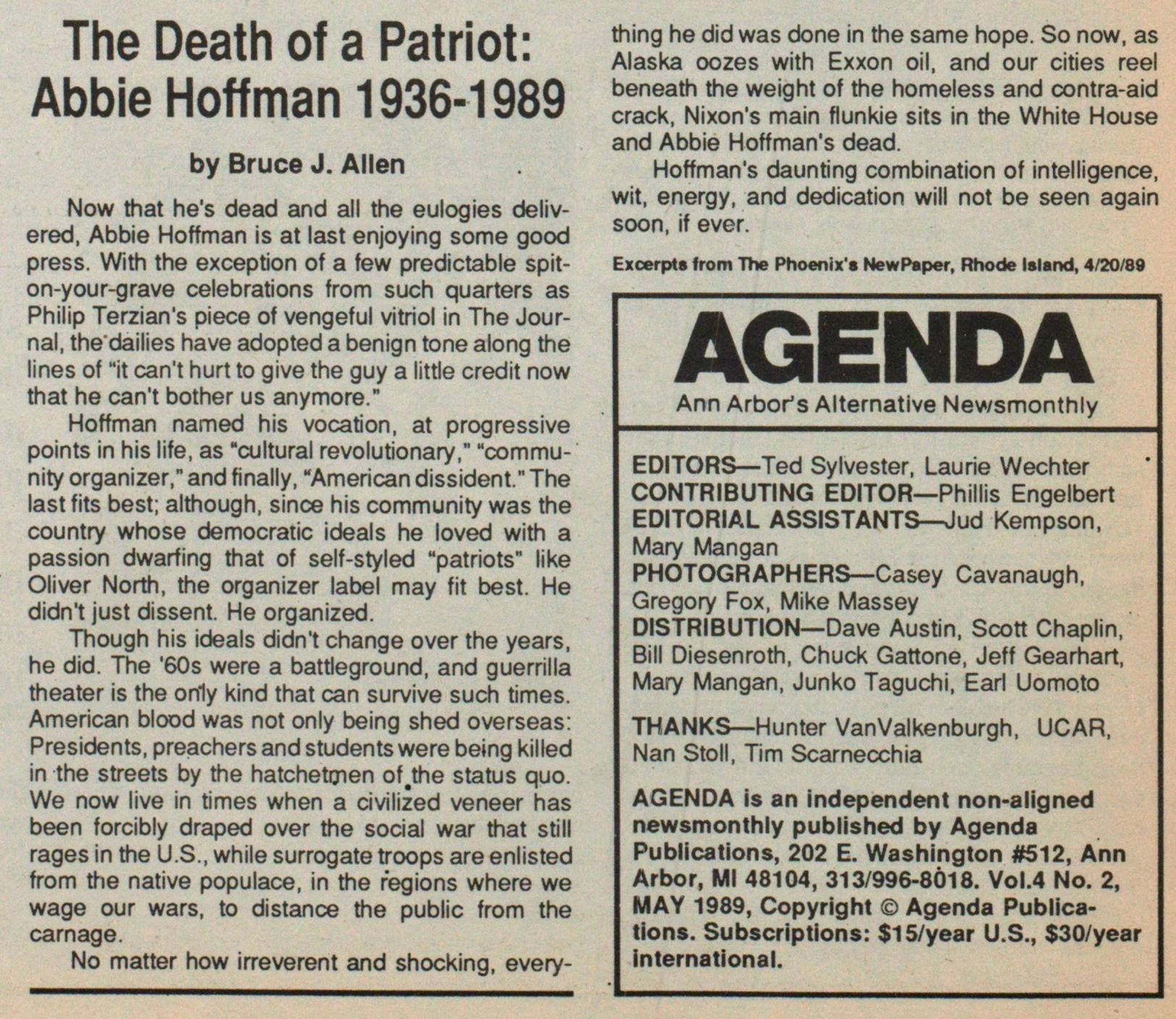The Death Of A Patriot: Abbie Hoffman 1936-1989

THE DEATH OF A PATRIOT: ABIIE HOFFMAN 1936-1989
by Bruce J. Allen
Now that he's dead and all the eulogies delivered, Abbie Hoffman is at last enjoying some good press. With the exception of a few predictable spit-on-your-grave celebrations from such quarters as Philip Terzian's piece of vengeful vitriol in The Journal, the dailies have adopted a benign tone along the lines of "it can't hurt to give the guy a little credit now that he can't bother us anymore."
Hoffman named his vocation, at progressive points in his life, as "cultural revolutionary," "community organizer," and finally, "American dissident." The last fits best; although, since his community was the country whose democratic ideals he loved with a passion dwarfing that of self-styled "patriots" like Oliver North, the organizer label may fit best. He didn't just dissent. He organized.
Though his ideals didn't change over the years, he did. The '60s were a battleground, and guerrilla theater is the only kind that can survive such times. American blood was not only being shed overseas: Presidents, preachers and students were being killed in the streets by the hatchetmen of the status quo. We now live in times when a civilized veneer has been forcibly draped over the social war that still rages in the U.S., while surrogate troops are enlisted from the native populace, in the regions where we wage our wars, to distance the public from the carnage.
No matter how irreverent and shocking, thing he did was done in the same hope. So now, as Alaska oozes with Exxon oil, and our cities reel beneath the weight of the homeless and contra-aid crack, Nixon's main flunkie sits in the White House and Abbie Hoffman's dead.
Hoffman's daunting combination of intelligence, wit, energy, and dedication will not be seen again soon, if ever.
Excerpt from The Phoenix's NewPiper, Rhode Island, 4/20/89
Article
Subjects
Bruce J. Allen
Obituaries
Old News
Agenda
Abbie Hoffman